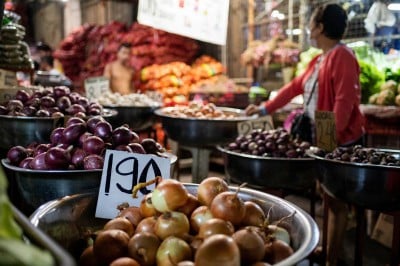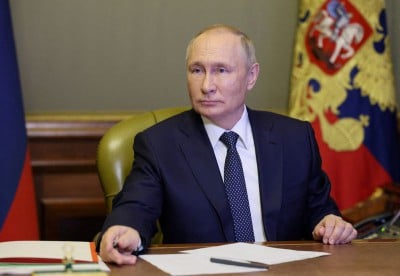 © Reuters. FILE PHOTO: Russia's President Vladimir Putin holds a video conference meeting with elected heads of Russian regions in Saint Petersburg, Russia, October 10, 2022. Sputnik/Gavriil Grigorov/Kremlin via REUTERS/File Photo CL +2.55% Add to/Remove from Watchlist Add to Watchlist Add Position
© Reuters. FILE PHOTO: Russia's President Vladimir Putin holds a video conference meeting with elected heads of Russian regions in Saint Petersburg, Russia, October 10, 2022. Sputnik/Gavriil Grigorov/Kremlin via REUTERS/File Photo CL +2.55% Add to/Remove from Watchlist Add to Watchlist Add Position Position added successfully to:
+ Add another position Close
By Alexander Marrow
MOSCOW (Reuters) - Russia's success in evading a Western oil price cap is helping drive a recovery in economic growth as President Vladimir Putin prepares to run for re-election, despite the problems caused by labour shortages, inflation and high interest rates.
Russia's parliament has formally set next year's presidential election date for March 17. Putin, who on Thursday said the economy was set to grow 3.5% this year, is widely expected to run for a new six-year term.
Russia's export-focused, $2.2-trillion economy has ridden the sanctions wave better than either Moscow or the West anticipated when those opposed to the February 2022 invasion of Ukraine sought to punish and isolate Putin's Russia.
Crucially, the West has been unable to effectively curb Russia's oil revenues. Russia has redirected exports to destinations such as China and India and used the opaque ownership of so-called shadow fleets of ships to circumvent the West's oil price cap.
In November, energy revenues contributed 961.7 billion roubles ($10.41 billion) to Russia's budget, compared with just 425.5 billion in January.
With oil revenues recovering, Putin's key domestic challenge will be grappling with a stark labour shortage, aggravated by last year's military mobilisation and the emigration of hundreds of thousands of people since Russia invaded Ukraine.
Other economic issues, such as the weak rouble, high inflation and interest rates risk squeezing households' purchasing power, a particularly sensitive topic as the country goes to the polls.
SKILLED WORKER SHORTAGE
With unemployment at a record low 2.9% and Moscow throwing fiscal resources at the defence sector through increased military production, other sectors like IT are short on staff, hampering productivity.
Russia needs more skilled workers, managers and high-quality engineers to reach the desired level of technological sovereignty in manufacturing industries, Putin's economic adviser Maxim Oreshkin said in November.
"For people to come here more willingly, we need attractive salaries," Oreshkin said.
Short-term sanctions shocks have been overcome, Oreshkin said, but pressure from the West will only increase and the whole economy must work on transitioning to Russian technology platforms.
Workforce capacity has reached historically high levels, said Dmitry Kulikov, director at the ACRA ratings agency.
"This means that economic growth will be constrained on the supply side, as a result of which annual GDP growth rates will fall from around 3% in 2023 to closer to the potential 1-2%," Kulikov said.
Significant wage jumps in manufacturing and the military, as well as fiscal support for families affected by the war and mobilisation, are driving an increase in salaries.
After a contraction in 2022, real incomes are set to recover sharply this year, but unevenly across sectors and regions, forcing many families to cut back, especially on imported goods.
As Russia's economy rebounds from a 2.1% contraction in 2022, the key question will be how the economy copes with overheating, with supply-side constraints likely to curb growth, said Liam Peach, senior emerging markets economist at Capital Economics.
"Households have experienced a big rise in their incomes, but I don't think it's sustainable," said Peach. "Higher inflation means a bigger squeeze on household incomes ahead of the election."
INFLATION PRESSURE?
Keeping a lid on inflation is the central bank's job. Already forced into 750 basis points of monetary tightening since July, the bank is widely expected to hike again, to 16%, on Dec. 15. Following double-digit inflation in 2022, inflation this year is seen at around 7.5%, still well above the bank's 4% target.
"It's plausible that inflation gets as high as 10% next year because the economy is growing quickly," said Peach, pointing to wage pressure and unanchored household inflation expectations.
But ultimately, the inflation situation is manageable for now, especially with a population that has become accustomed to regular price rises, however painful.
The central bank will of course talk cautiously about inflation, said Elina Ribakova, senior fellow at the Peterson Institute for International Economics and the Kyiv School of Economics (KSE).
But the development of a serious inflation spiral would require greater fiscal pressure, uncontrolled rouble depreciation and the central bank being behind the curve, she added.
"They are nowhere near that, they are just not feeling the pressure," Ribakova said.
Authorities responded with rate hikes and capital controls to the rouble's tumble past 100 to the dollar this year and sharp volatility is always a risk. It traded at 92.76 on Thursday.
While a relatively weak rouble is factored into Russia's budget plans and boosts state coffers through foreign currency export revenues, it pushes up import costs, fans inflation and risks capital flight.
OIL PRICE COMFORT
Oil prices, the lifeblood of Russia's economy, are currently well above what Russia needs for fiscal security, even if they slid to five-month lows this week.
A series of output cuts by OPEC+ countries and the widespread circumvention of the West's price cap are combining to boost Russia's energy revenues.
"Fundamentally, the price cap's leverage is increasingly under threat," KSE Institute said in its November review, referring to the West's $60 a barrel cap. "In October, more than 99% of seaborne exports of Russian crude oil appear to have been sold above $60/barrel."
The West's sanctions, designed to cut Moscow's key source of financing, put immense strain on Russia's budget deficit early this year, but Moscow now expects a deficit of around just 1% of GDP.
"If the oil price stays at the current level, it is extraordinarily comfortable for Russia," said Ribakova.
($1 = 92.3955 roubles)
Analysis-Putin's economic challenges are numerous but surmountable as election looms
Related pages
Japan's Nippon Steel exec meets US Congress members amid US Steel deal
© Reuters. FILE PHOTO: The logo of Nippon Steel Corporation is displayed at the company headquarters
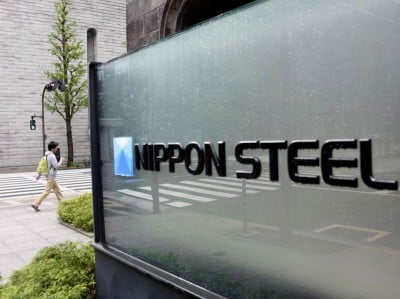
Dollar steady as traders await US inflation data, bitcoin volatile
© Reuters. U.S. Dollar banknote is seen in this illustration taken July 17, 2022. REUTERS/Dado Ruvic
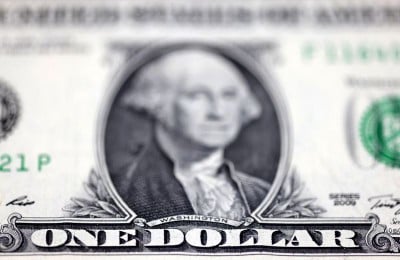
Taiwan says Chinese balloons threaten aviation safety
© Reuters. FILE PHOTO: Chinese and Taiwanese flags are seen through broken glass in this illustratio
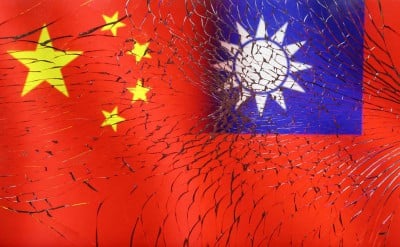
AI to dominate this year's CES, even without OpenAI's Altman on hand
2/2© Reuters. FILE PHOTO: Attendees watch a display on curved OLED screens at the LG Electronics b

China's Nov new yuan loans seen rising on policy support: Reuters Poll
© Reuters. FILE PHOTO: Chinese yuan banknotes are seen in this illustration picture taken April 25,
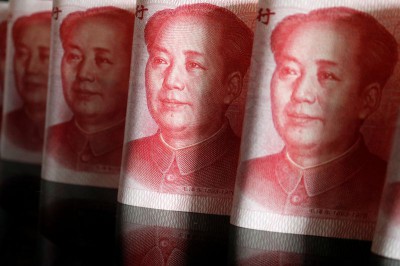
Philippine central bank says to keep policy tight despite an easing in inflation
© Reuters. FILE PHOTO: Onions are displayed at a stall at a public market in Manila, Philippines, Ja
